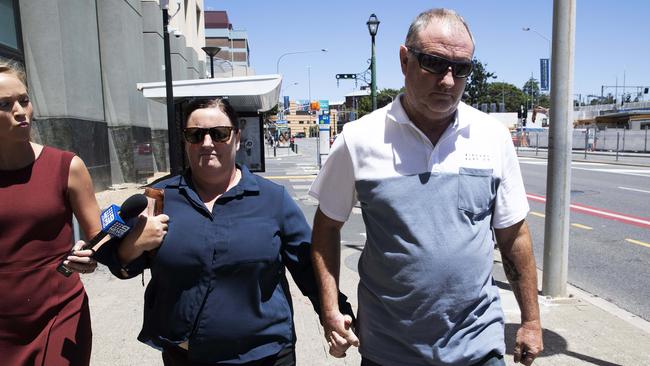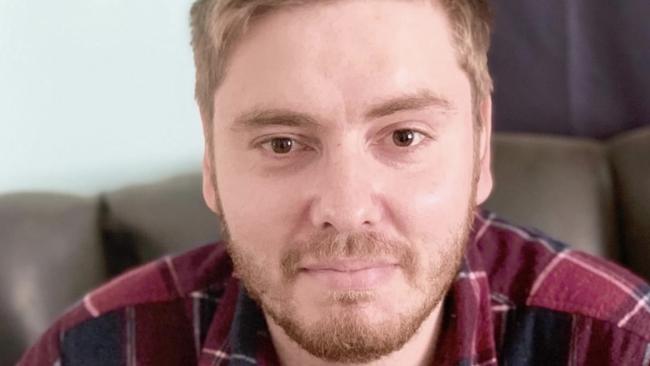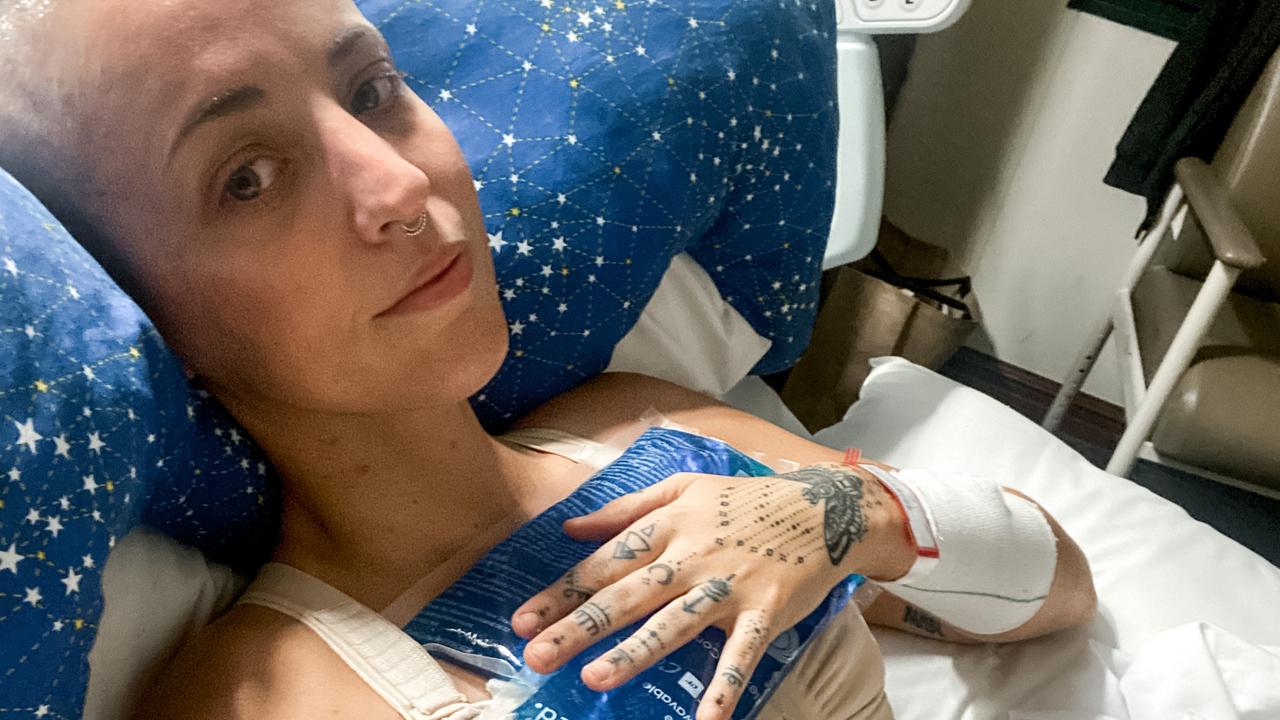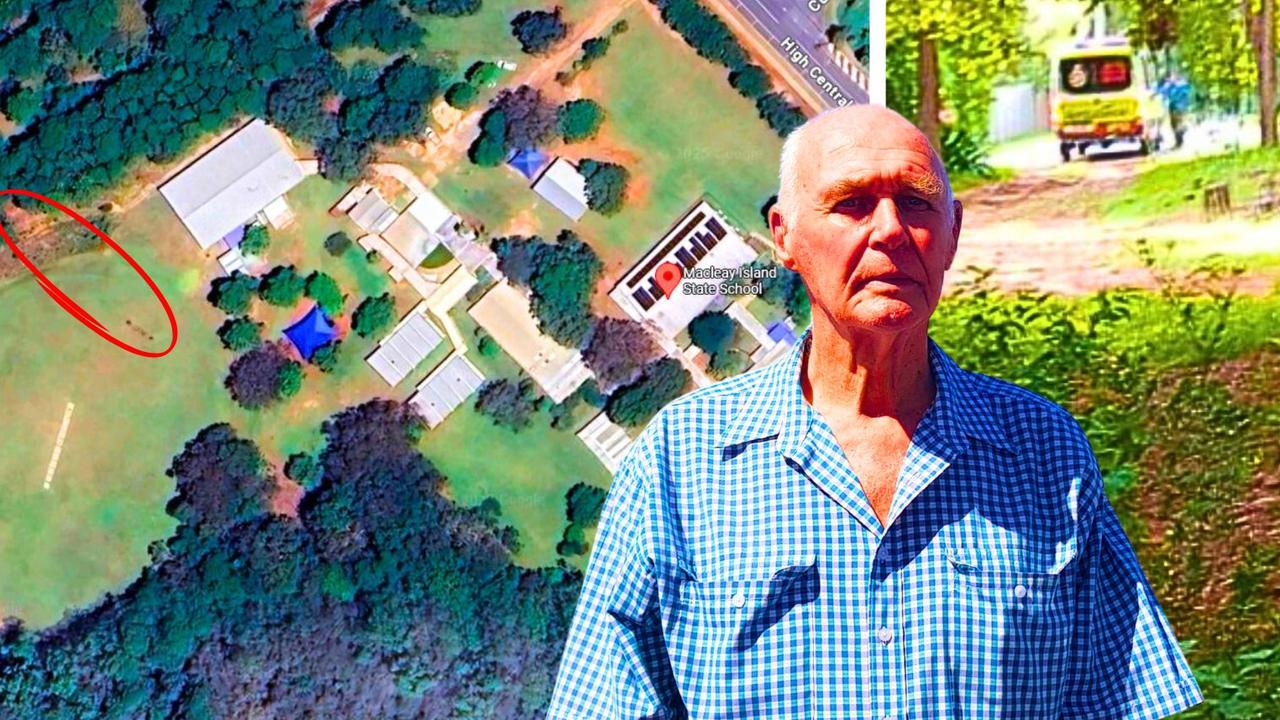James Michael Waugh: Ex-journalist accused of plotting terror attack wanted to ‘cleanse the world’, court told
A former journalist accused of plotting a terrorist attack on Queensland’s coast believed he was chosen by god to “cleanse the world”, a court has heard.

Local
Don't miss out on the headlines from Local. Followed categories will be added to My News.
A former journalist accused of plotting a terrorist attack in Bundaberg had a history of making bold and violent statements which related to his “extreme religious ideology”, a court has heard.
James Michael Waugh appeared in Brisbane Magistrates Court via video-link from Brisbane Men’s Correctional Centre on Tuesday, September 27 to apply for bail.
The 31-year-old Kepnock man was charged with a terrorism offence in 2020 after a Queensland Joint Counter Terrorism Team operation involving the Australian Federal Police and Queensland Police Service allegedly revealed he was planning to commit a terrorist act in Bundaberg. He is yet to enter a plea.
On Tuesday, he appeared on-screen sitting behind a silver table – wearing a khaki prison top and handcuffs and looking slightly dishevelled with long, unruly hair and an unshaven face – as his counsel pleaded his case.
The court heard Waugh was charged with one count of committing an act in preparation for, or planning, a terrorist act after he sent an email message to a local firearms trainer about undertaking shooting lessons.
The Crown alleged the email was proof of intention to commit a terrorist act given his history, which included various incidences and comments made by Waugh relating to “extreme religious ideology”.
The court heard that, after sending the email, Waugh was recorded in his car making threats to harm a mental health case worker who was not “forthcoming” with him in the way he would have liked him to be.

Magistrate Kyna Morice summarised Waugh’s alleged comments and behaviours which preceded the email and the recorded conversation – according to the prosecution – as: “(expressing) the desire to … engage in acts of religiously motivated violence (and) comments that indicated a belief that (Waugh) was chosen by god to be part of a mission to cleanse the world during the coming of the Mahdi.
“That he openly expressed thoughts of violence towards others, including the beheading and slaughtering of nonbelievers of Islamic religion …
“That previously he had begun to develop a plan that included preparation to kill a lot of people and obtained a sword as part of that planning, but was arrested before any plan could be enacted. And that he made numerous references to firearms.”
Defence barrister Ruth O’Gorman argued there were “exceptional circumstances” surrounding her client’s matter which warranted his release including that the Crown’s case was “a weak one”, that a doctor’s report indicted Waugh may be able to rely on a mental health defence, and that Waugh had spent a lengthy period of time in custody since November 27, 2020.
She told the court Waugh was subject to an involuntary treatment order which would continue if he were to be granted bail, as he would not be released into the community immediately but would be taken to a secure unit at the Princess Alexandra Hospital.
Ms O’Gorman said, if granted bail, it was estimated he would be released from the hospital into the community in early October, though his release date would depend on the opinions of his treating professionals and when they deemed it an appropriate time for him to re-enter society.
Magistrate Morice noted she was “somewhat perplexed” by references made by Waugh’s treating doctor to him still today experiencing “auditory hallucinations” of voices that swear at and “abuse” him.
Ms O’Gorman confirmed the doctor had indicated the voices Waugh heard were no longer commanding him to take any actions and the “nature of them” had reduced significantly.

She said the doctor believed her client presented a “relatively low” risk to the community and to himself, but accepted he would still require a high level of care if released on bail.
“He would be physically free to take leave (from the hospital) but it would have to be approved and would be monitored …,” she said.
Ms O’Gorman said her client expressed in mid-August, 2020 – just prior to the alleged offending – that he did not believe he suffered a mental illness and was not “open to medication”.
On October 14, 2020, he was said to have told Queensland Health professionals that he ceased taking his psychiatric medication four to six weeks earlier, which Ms O’Gorman said may have contributed to his “chaotic and disordered” way of thinking.
She referred to an alleged email sent by Waugh to an unnamed recipient, in which he expressed his interest in undertaking shooting lessons.
Waugh allegedly said he had participated in such activities in the past – which he described as being “lots of fun” – and asked the recipient if they were interested in firearms training.
Ms O’Gorman asked Ms Morice to consider her client had been a reservist in the Australian Army for a period between 2014 and 2018 and, as such, his interest in weapons was not recent.
The defence argued the prosecution’s case was “weak” as, if the matter were to proceed to trial, the Crown would struggle to prove the contents of the email was an expression of Waugh’s desire to harm members of the community, and could only be inferred as such.
Ms O’Gorman further said if mental health were to be a defence available to her client then he would have been subject to “psychotic thinking” at the time he sent the email, and “deprived” of the ability to know what he was doing was wrong.

Crown prosecutor Sarah Farndon argued that any change Waugh’s doctor and treating team believed they had seen in his mental health condition was “not genuine” as the former journalist often manipulated his words to cause or alleviate concern depending on what he wanted at the time.
She said this was of “significant concern” as his treating team was not cognisant of the seriousness of the situation in terms of Waugh’s potential release and his ongoing security.
Ms Farndon further stated the alleged offending occurred while he was subject to court-ordered supervision following a previous sentence and should have been taking medication, but was not, demonstrating a noncompliance with both treatment and court orders.
The court heard the “very concerning threats” made by Waugh related to one specific mental health nurse he dealt with at Bundaberg, as well as generally towards anyone who worked in mental health.
Ms Farndon said some of his other threats referred to him “unleashing pandemonium” on the streets of Bundaberg. She concluded that his potential release posed a number of “unacceptable” risks.
Ms Morice said she ultimately found the case to be “weak” and “circumstantial”, noting also that there was a potential Waugh would be able to rely on a mental health defence.
She said she believed certain strict conditions would sufficiently ameliorate any risks of Waugh failing to appear at court when required or endangering the welfare of the community.
Waugh was ultimately granted bail and, as such, will be moved from the Men’s Correctional Centre to the Princess Alexandra Hospital, where he must reside until the Department of Public Prosecutions permits his release and return to Bundaberg.
Upon him leaving the care of the hospital, he must adhere to numerous other conditions such as a 6pm curfew and limits to his use of electronic devices.
Waugh’s matter will next be mentioned at Brisbane Magistrates Court on November 4, the adjournment granted at the prosecution’s request after Ms Farndon said the Crown was “considering its position”.




